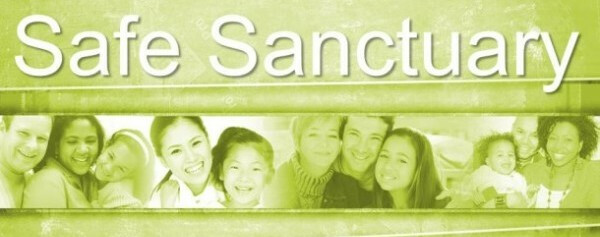
01.13.15 | Young Peoples Ministry, Administration & Operations | by Christie Latona
Every local church in the Baltimore-Washington Conference is required to develop and implement a Safe Sanctuaries plan. This plan must be reviewed and updated periodically. The Baltimore-Washington Conference is committed to ensuring that all children and youth involved in conference ministries may participate in an environment that is safe and secure. To that end, all churches are required to have a Safe Sanctuaries Plan and to have anyone who works with children and youth fill out the Sexual Misconduct Questionnaire.
Take advantage of our new online training as practical support to you and your church's efforts to create a safe environment for children, youth, vulnerable adults, staff, and volunteers.
1. What does the BWC Safe Sanctuary policy require?
The policy requires that every local church use the book Safe Sanctuaries: Reducing the Risk of Child Abuse in the Church, by Joy Thornburg Melton (Discipleship Resources, ISBN: #9780881775433) as a guide to develop a policy and implement procedures.
This book is very thorough and leads you through the basics which apply to all children and youth. It will guide you through the process and help you ask and answer the right questions. Each local church needs to do this so that they can agree on exactly what they will do and everyone will understand and abide by the decisions. The annual conference will not dictate what your policy or your procedures will/should be.
2. Does this apply to everyone who works with children and youth?
YES. All volunteer and paid staff of Sunday school, youth groups, nursery care or any other program should be included. Use the Safe Sanctuaries manual to help you discern exactly what this means for your situation.
3. Does this requirement replace the Sexual Misconduct Questionnaire?
NO. The Sexual Misconduct Questionnaire is still a requirement and reporting in that manner will not change.
4. Does everyone who works with children and youth have to have a background check?
Again, use the manual as your guide to answering this question. Additionally, you should check with your church’s insurance carrier to determine whether you are required to do this to keep your coverage in force. Some carriers are now requiring this step. It is not normally necessary, however, for you to use the State Police or FBI background check system. For example, if you have someone who will be driving youth to an event, you may choose to do a driving record check (a separate check with a separate fee). You would not need to do that for everyone.
Please note that if you have a licensed program of any kind, the State, County or District probably requires all staff to obtain a background check through the State Police or FBI process, and this is non-negotiable. ALL programs such as nursery school, preschool, daycare, before-and-after-school care, and many camp programs (even if they are held in your local church) are required to be licensed.
5. How much will this cost?
If you decide that background checks are necessary or desirable, the cost will vary but a basic search can be performed for a fee of between $9 and $12. We have prepared some guidance with regard to recommended searches and have listed several companies that offer a variety of options that you may wish to consider. We are currently researching this further to see if we can offer a conference-wide program that can be shared and utilized by all of our churches and camps. This information will be updated when available.
We would recommend that a basic volunteer search include:
- Social Security verification and address history
- National Criminal Database Search
- National Sex Offender Search (including a “true” 50 state sex offender registries search with several states that must be searched by “name-only”, because some states do not provide date of birth on the offenders – This does include Maryland).
- Driver’s license search (if the volunteer will be driving children or youth).
6. Are there resources available to help us in training our volunteers and other staff?
Yes. We have developed an online course to assist you in training your volunteers and staff who work with children, youth and vulnerable adults. There are videos and DVDs available from the mission center’s resource center. The Safe Sanctuaries manual has an excellent resource list. Also, Protect My Ministry, one of the background search services provides online Child Safety Training that you may want to look into.
In addition, members of the Baltimore-Washington Conference Commission on the Status and Role of Women have been trained and are available to help you in this process. For this kind of help, call the mission center and ask for Sandy Ferguson at 410-309-3431.
7. What does a congregation do if a registered sex offender is coming to church?
The purpose of safe sanctuary is to provide a safe environment for all persons as much as possible so that no one is harmed. We want to also ensure that no one is falsely accused. While we know that there are situations and congregations for which this policy will not work either because of the lack of support for it by the SPRC, or the depth of pain in the congregation among members who have been sexually abused, we recognize the need for all persons to have the opportunity to worship.
There are times and places where registered sex offenders will not be able to worship. However, there are places and congregations who have the personnel to work with the best practices recommended and where registered sex offenders can worship.
